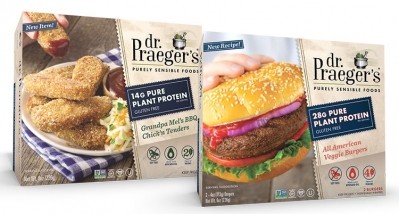Consumers’ evolving understanding of wellness creates marketing opportunities for retailers, brands

“Consumers are passionate about embracing health in many aspect of their lives, and food is a big part of this. The challenge is that consumers find or say they are often confused about how to improve their health and often can’t even agree on how to define it,” FMI argues it is 2019 Power of Health and Well-being in Food Retail report.
It explains that “health often means different things to different people, varying by generation, income and other demographics,” and as such, “consumers often don’t agree on what kinds of foods or lifestyles will keep them well.”
To find clarity and identify healthy strategies that will work for them, consumers increasingly are turning to food retailers “as an ally in supporting their health,” according to report, which adds that many banners are successfully filling this role but they still can do more.
Defining health, wellness and well-being
To effectively provide consumers with health solutions, retailers and manufacturers need to understand how shoppers define wellness and how that relates to an emerging concept of well-being, FMI notes.
“Consumer perspectives on health and wellness have shifted dramatically in the past few decades,” with nearly twice as many consumers in 2017 considering products with the shortest ingredient lists to be the healthiest compared to 10 years early, according to the report.
Specifically, it found 20% of consumers in 2017 said a short list of ingredients was a marker of quality and health compared to only 11% in 2007. Similarly, the percentage of consumers who consider as an indicator for health whether something was locally grown or produced grew to 21% in 2017 compared to 13% in 2007, and 22% said in 2017 that they would consider a product containing only ingredients they recognized to be healthier compared to only 17% who said the same ten years earlier.
In addition, as consumer awareness of nutrition has grown, thanks in part to Nutrition Facts labeling, more are viewing food as medicine for chronic disease, such as heart health, and other more general ailments such as energy, brain function and digestive health, FMI notes.
Despite these generalities, consumers’ specific views of nutrition and health vary based on their life stage, FMI found.
For example, it found that Boomers are more likely to look at calorie information, ingredient lists, expiration dates and brand names, compared to Millennials who are more likely to consider the product’s larger impact on the environment and animal-well fare – a signal of personal wellness tipping into a larger notion of well-being.
The report notes that for many consumers wellness is more closely tied to specific health indicators, but well-being has a broader definition, including emotional health, energy levels and sleep behaviors. It also is more closely aligned with happiness.
Another indicator that a more generalized need for well-being is blurring into wellness is that the vast majority of consumer say it is extremely important to them to eat at home together with family – suggesting that the sharing food with loved ones is contributing to their mental health as well as their emotional well-being.
As such, the report suggests that ‘eating-well’ is expanding beyond just nutrition to include ‘enjoyment, discovery and connection,’ which can motivate shopping behavior and are targets on which retailers can act.
Offering tailored solutions
FMI reports that many retailers have “stepped up to the plate with a range of initiatives aimed at satisfying shopper needs and desires,” including around health, wellness and well-being, and that these are translating to higher sales.
For example, in 2017, 89% of food retailers surveyed by FMI had established health and wellness programs, compared to only 54% in 2014.
In addition, in 2017, more than 70% of food retailers hired health and wellness leadership staff to drive programs, including offering healthy recipes and cooking classes, and close to or more than 90% employed dietitians, worked with health care providers in the community and had webpages dedicated to health and wellness.
While all of these are effective strategies, FMI says retailers can do more to capitalize on health, wellness and well-being trends.
The top suggestion in the report is to emphasize the idea of food is medicine by further educating shoppers on specific products and categories can address chronic diseases or ailments. Hand in hand, it recommends offering smaller portion sizes of products that are not considered as healthy, such as baked goods, so that consumers can still enjoy them in moderation.
Retailers also can help by making it easier for consumers to follow health related advice by providing shortcuts, such as pre-seasoned healthy proteins or chopped produce that can be quickly combined or cooked at home to add more fruits and veggies to shoppers’ diets.
Other strategies include:
- Promote local
- Encourage consumers to eat with others, and
- Explore partnerships
















